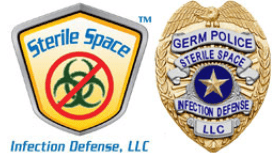Methicillin-resistant Staphylococcus aureus (MRSA) is staph bacteria. In general, staph infections are very common and usually easy to treat. However, this type of staph infection is resistant to beta-lactams, which are antibiotics that include penicillin, amoxicillin, and oxacillin, and many others. MRSA is referred to as a superbug, because it is so much more difficult to treat. MRSA has caused fear in many people, and this led to the creation of myths that for the safety of you and your family need to be busted.
MRSA Infections Are Rare
The first myth about MRSA is that infections are rare. In 30 years, the percentage of staph infections that were determined to be MRSA went from 2% to 64%. In 2005, according to the Centers for Disease Control and Prevention, more than 94,000 people contracted dangerous infections that were caused by MRSA.
MRSA Only Found in Hospitals
Some people also believe you can only become infected with MRSA in hospitals. Hospitals are where MRSA began and still where most infections take place – however, it has spread and is becoming increasingly more common out in the community. It’s usually found in crowded or dirty environments like gyms, schools, within sports teams, and similar places. MRSA that is contracted in the community can often be stronger and more invasive than MRSA contracted from hospitals.
MRSA Infections Are Not Contagious
Other people mistakenly think that MRSA is not contagious. This is FALSE. Touching someone with a staph infection and then touching your nose, eyes, or any scrape on your skin can spread MRSA. It can be spread as easily as a cold. There are also two studies that show that MRSA can spread through the air. However, these are controversial and not yet widely accepted.
MRSA Is Not Deadly
Many believe that MRSA cannot lead to death. A study published in 2005 found that of 94,360 cases of MRSA that were reported, around 18,650 were fatal. MRSA in hospitals has declined and, according to the Centers for Disease Control and Prevention, about 10,800 people die every year in the United States from staph infections, and 5,500 are connected to MRSA.
Though many people can recover easily from a MRSA infection, some infection patients have far more serious, dangerous cases. New types of MRSA often infect people who are usually healthy, and it can be very hard to get rid of if you are only relying on mainstream infection treatments.
MRSA is Permanent
Some believe that MRSA cannot be cured, and that if you get it once you will always have it. While it is a very difficult infection to fight and can recur multiple times, MRSA is not permanent. There are certain types of antibiotics that it is not resistant to that can be used to combat it. There are also other options for treatment that, while less mainstream, can be more effective.
Additional Resources:
https://www.staph-infection-resources.com/info/mrsa-myths/
https://www.bstquarterly.com/Assets/downloads/BSTQ/Articles/BSTQ_2014-04_AR_Myths-and-Facts-MRSA.pdf




